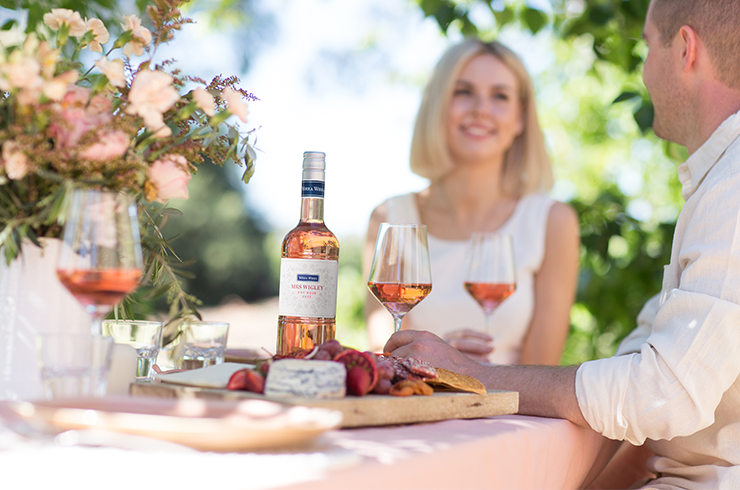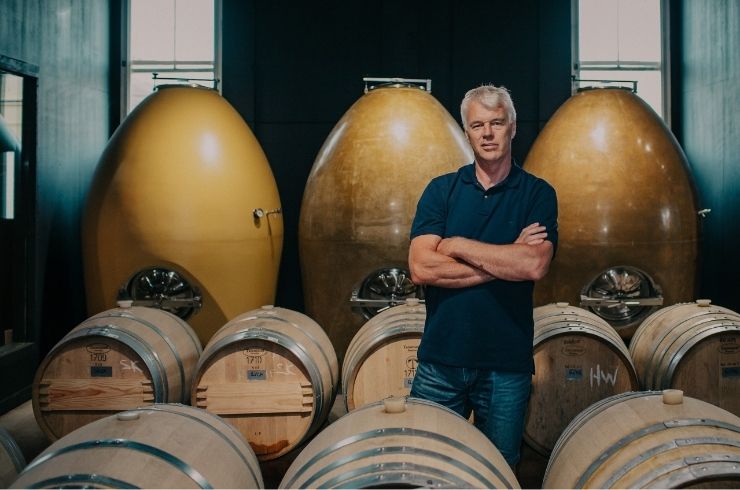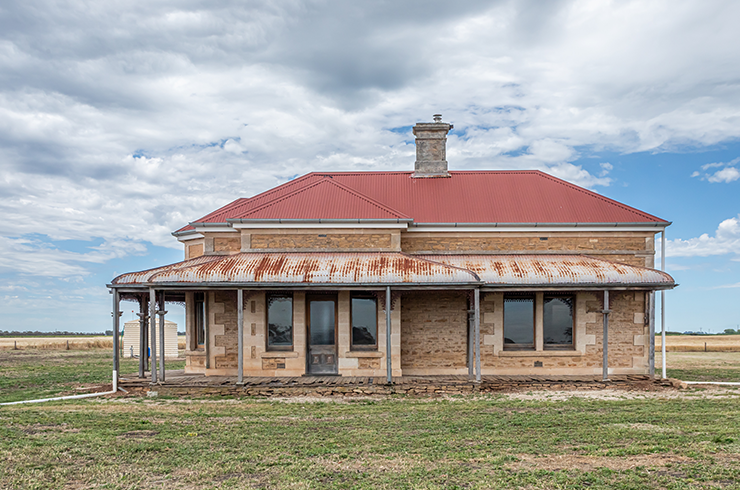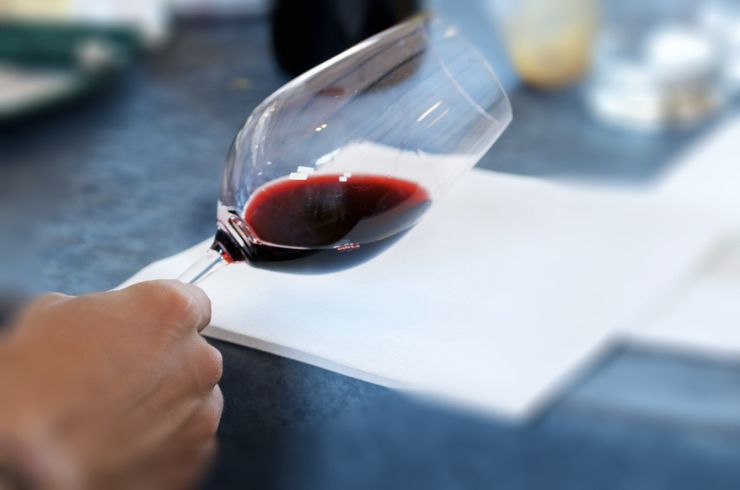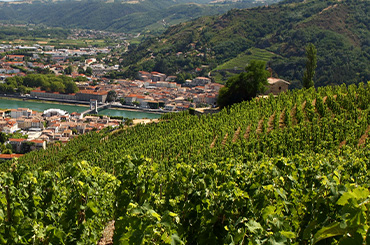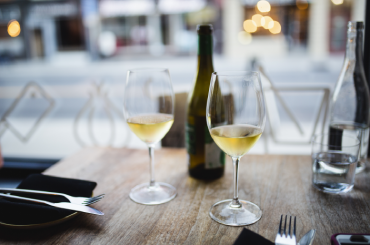Viognier, marsanne, roussanne – whether you’re new to these varieties or a die-hard fan, locally grown Rhone whites have plenty to offer those who enjoy rich whites wines. Four winemakers delve into why these French grapes have found a home among Australian soils.
Sutton Grange - Bendigo, VIC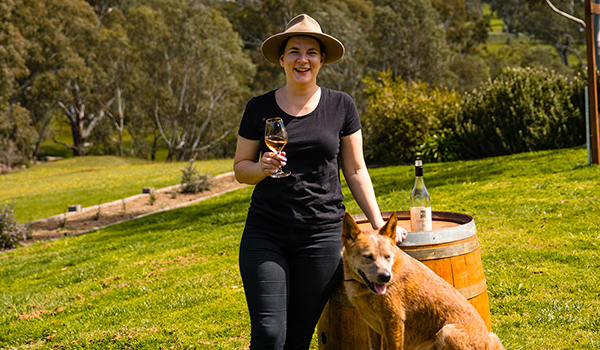
Sutton Grange’s Melanie Chester takes a less-is-more approach when it comes to winemaking. The winery’s vineyards are cultivated using organic and biodynamic methods and each wine is handcrafted. The result is wine that expresses the characteristics of the place where it’s grown.
Q: Why viognier?
A: “For us, it’s all about growing varieties that work well with our terroir. The soil at Sutton Grange is decomposed granite sand, very similar to the soils of Condrieu in the northern Rhone where the variety originates. The soil, combined with our organic farming and minimal irrigation, means we get incredible quality viognier from our farm. This wine is one of the best expressions of our property.”
Q: How is viognier best enjoyed?
A: “Our Estate Viognier ages beautifully and gets lovely cashew- and lemon-butter notes. If your patience allows it, then let it age. Otherwise, it’s a lovely springtime white to enjoy with your best friends (quasi-friends aren’t worth wasting this wine on!), served with a crumbed pork cutlet, lots of Dijon mustard and an array of spring veggies on the side.”
Indigo Vineyard - Beechworth, VIC
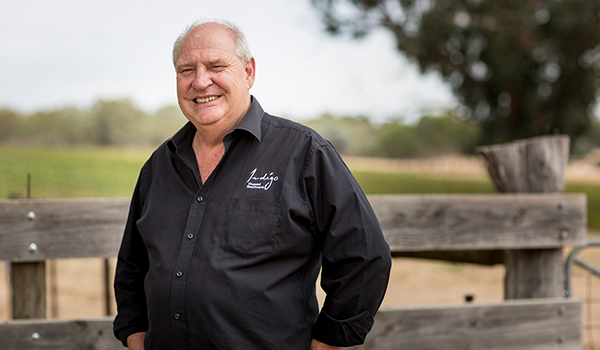
Beechworth’s Indigo Vineyard wines begin with superb grapes. As specialist grape-growers first and foremost, Rob Hawkings says their winemaking process is characterised by a focus on sustainability, low-impact techniques and careful fruit-picking.
Q: How do you approach making Rhone white varieties?
A: “Our preferred style has lots of lovely aromatics, with hints of apricots and peaches plus a zing of citrus. We know that we have to keep the fruit perfectly clean in the vineyard and pick it just ripe; in 2017 we added a new hogshead and this played an integral role in bringing out the fabulous characters.”
Q: What differentiates Rhone whites from other white varieties?
A: “The distinguishing features of Rhone whites are the aromatics and phenolics. At Indigo Vineyard, we grow roussanne and viognier. The key for us is to avoid the overripe apricots that are too often the hallmark of viognier. In my lifetime, viognier went from just a few hectares in Condrieu, where it loves the granite-rich soils, to right across the world and in Beechworth.”
Tahbilk - Nagambie Lakes, VIC

Located in central Victoria’s Nagambie Lakes, Tahbilk is a winery rich with history. Since its establishment in 1860, the vineyard has grown to some 200 hectares, now specialising in the grape varieties of the Rhone. The region’s sandy loam soils and climate make for fine, fruit-forward wines, as Alister Purbrick explains.
Q: Do you prefer varietal Rhone whites or blends?
A: “I particularly like marsanne as a varietal wine. That said, it can work quite well in a three-way blend with roussanne, as long as viognier is a minor component of the blend, otherwise it can overpower the other two more delicate varieties.”
Q: What differentiates your marsanne from others?
A: “Tahbilk has had a long-running love affair with marsanne since the late 1860s and, notwithstanding that phylloxera destroyed these vines in the late 1800s, Eric Purbrick decided to replant this variety in 1927. Tahbilk now has some of the oldest marsanne vines and the largest single holding of this variety in the world.”
Tim Smith Wines - Barossa, SA
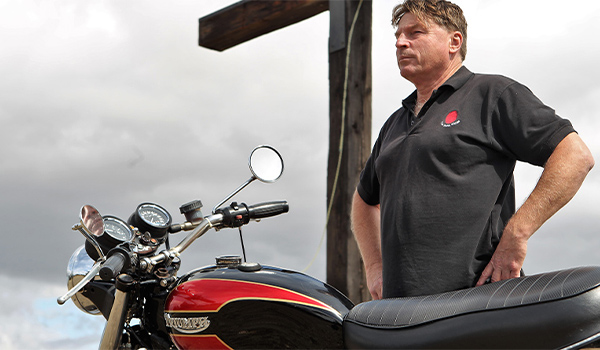
Tim Smith Wines is a boutique winery in South Australia’s Barossa Valley. Owner and winemaker Tim Smith has drawn on his experience with international vintages to cultivate a range of varieties. His passion for innovation is coupled with a sensibility for traditional winemaking methods.
Q: What make Rhone white varieties so special?
A: “For me, the appeal in Rhone white varieties lies in the very different aromatic profile from the more delicate aromatic whites. Traditionally, oak is a part of Rhone white styles, and this provides great texture and volume to the wine. I think this part of the winemaking has been refined somewhat, to the point now where the riper fruit characters play the lead role. When picked at sensible ripeness, this makes for quite complex wines.”
Q: How has your winemaking of these varieties evolved?
A: “We are becoming more comfortable with higher pH and choosing the multiple picking method to achieve good natural acidity. Our process is really aimed at avoiding extract, which can be a problem for viognier. So, getting the fruit into press and getting juice away from skins quickly is a non-negotiable. I’m less concerned these days with ferment temperature as well. Ageing the wines on lees is also a key thing – it provides texture and protection during ageing.”
*This article was produced by Halliday Wine Companion in partnership with the featured wineries.
